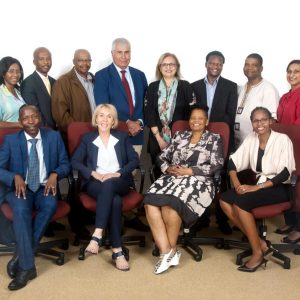
SAHPRA refutes claims made by the Black Farmers Association of South Africa (BFASA) that SAHPRA is a corrupt entity with an inclination towards White bias, in the issuing of licenses, generally and particularly with respect to cannabis products.

SAHPRA is subject to inter alia the Public Finance Management Act (“PFMA”), and therefore conducts itself with the utmost integrity and prides itself in the ethos of transparency. SAHPRA is tasked with regulating (monitoring, evaluating, investigating, inspecting and registering) all health products. This includes clinical trials, complementary medicines, medical
has the added responsibility of overseeing radiation devices and in-vitro diagnostics (IVDs).
Furthermore, SAHPRA control in South Africa. SAHPRA’s mandate is outlined in the Medicines and Related Substances Act (Act No 101 of 1965 as amended) as well as the Hazardous Substances Act (Act No 15 of 1973).
It is specifically SAHPRA’s mandate to ensure that healthcare products as described above are safe and effective to ensure the health and well-being of potential consumers. Therefore, when considering licensing applications, the focus therefore is primarily on the safety and efficacy of the product, and less on the manufacturer or distributor. With respect to the cultivation of medicinal cannabis and the manufacture of related products, all applicants have to abide by strict protocols. (https://www.sahpra.org.za/requlatorycompliance/).
This is because SAHPRA has the interests of the safety of the public as a central feature in all its dealings. Any person who can demonstrate that it meets the criteria applicable for the licence sought will be granted a licence. However, it must be stressed that because these products are utilised for treatment of health issues, SAHPRA must ensure that the products are safe for human consumption. SAHPRA is legislatively obliged to ensure that the potential consumers remain protected.
This has resulted in falsehoods and defamatory statements being made by members of these organisations, inter alia, against the SAHPRA Board Chairperson, Prof Helen Rees, who is accused of issuing and selling licences to affluent White people. The SAHPRA Board is not operational in the process of issuing licences and accordingly does not get involved in any operational functions of the Authority.
There is a strict process and strict protocols involved in the issuing of licences and the relevant personnel and committees are tasked with this procedure.
The allegations made against Prof Rees are rejected with contempt.

SAHPRA Executive Management has had numerous engagements with BFASA to address their concerns and to clarity the very narrow role of SAHPRA in the cannabis value chain. Furthermore, as SAHPRA takes the national policy issues raised by BFASA seriously, the SAHPRA Board and the Presidency have been pulled into these discussions. SAHPRA has taken a developmental approach and is currently reviewing a mechanism that will enable small farmers to enter this sector.
Once finalised, this approach will be communicated to the relevant stakeholders. Under the current legislation, SAHPRA does not issue licences for the cultivation of cannabis for non-medicinal commercial purposes. SAHPRA’s role is limited only to medical cannabis.
The process to obtain a licence from SAHPRA to cultivate cannabis for medicinal purposes is a rigorous one, which must comply with the legislative framework. There needs to be standardisation of the medicinal cannabis cultivars and assurance that crops can be grown under conditions of strict security and good quality.
The cultivation of cannabis for medicinal purposes requires strict control as South Africa is a signatory to international treaties that prohibit the production and supply of narcotic and psychotropic drugs, including the Single Convention on Narcotic Drugs of 1961.
“SAHPRA recognises that there is an ongoing global dialogue around the use of cannabis for both medicinal and non-medicinal purposes. In South Africa, there is a national policy dialogue wherein SAHPRA and other institutions are involved. The oversight of current and possible future uses of cannabis involves many stakeholders, including SAHPRA, the Department of Health, Department of Agriculture Land Reform and Rural Development, Trade and Industry and Competition, the South African Police Service, and Parliament. SAHPRA is by no means the only entity that is involved with the regulation of cannabis,” indicates Dr Boitumelo SemeteMakokotlela, CEO of SAHPRA.

SAHPRA is concerned about the inaccuracies of such narratives by the BFASA because they confuse the public in what is a complex legal and national policy matter. Accurate reporting is essential to allow the public to participate constructively and meaningfully in this debate, and we accordingly urge the public to verify the facts for themselves in order to ensure that they make informed decisions.
SAHPRA is obliged to remain focused on its mandate, which is to ensure that potential healthcare products are safe and effective for human use prior to them being offered to potential consumers.
THIS UNEDITED INFO WAS SUPPLIED BY SAHPRA.
SAHPRA STANDS FOR –SOUTH AFRICAN HEALTH PRODUCTS REGULATORY AUTHORITY.

